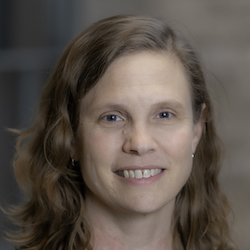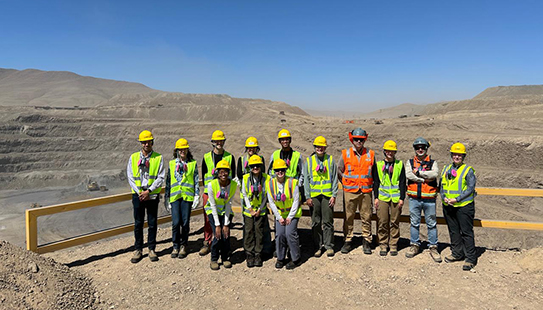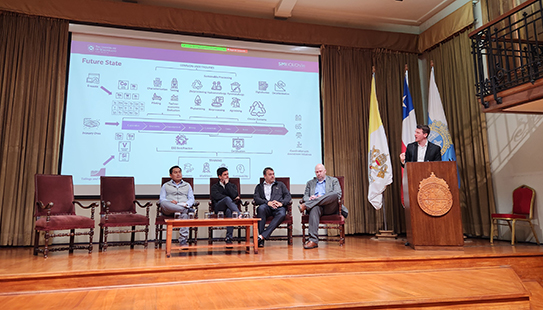McCormick Students Explore Chile’s Role in Global Green Energy Transition on Sustainability Trek
During the trip, the group discovered the country’s role in sustainable energy and mining
Northwestern's Center for Engineering Sustainability and Resilience (CESR) aims to tackle complex sustainability challenges through research and educational efforts.

One of CESR’s teaching methods is to show students firsthand how industry and green technologies impact local communities. Eight students – including five from Northwestern Engineering – journeyed to Chile September 9-20 on CESR’s second Global Engineering Trek: Energy Storage and Critical Materials. The trip was supported by CESR and its National Science Foundation-sponsored Sustainable, Resilient, responsible global Minerals supply chain (SuReMin) center (part of the NSF’s Global Centers program), McCormick Global Initiatives, the Paula M. Trienens Institute for Sustainability and Energy, and the Buffett Institute for Global Affairs.
“Chile is one of the world's largest lithium and copper producers and a country at the heart of global efforts to build green energy generation and storage systems,” said trek leader Jennifer Dunn, professor of chemical biological engineering and CESR director.
Central to the experience were visits to three Chilean mines, including the Manto Verde copper mine in Copiapo, about 500 miles north of the trip’s base in Santiago, the country’s capital city. During that excursion, the students ate lunch with the miners and experienced part of their daily life. They observed a constant stream of massive mining vehicles carting away ore. They also visited SQM’s lithium mine in the Atacama desert and learned about efforts to conserve water.


For Simone Sullivan, a senior chemical engineering student, another memorable aspect of that day was learning that the supervisor of the sulfide plant was a woman in an industry with very low female participation rates. In Chile, that rate is 15 percent.
“It's nice to be able to collaborate with women who are also doing great things,” Sullivan said. “When we were at Manto Verde it was a special moment because we were receiving encouragement from women heading mining process teams."
The cohort also experienced Chilean life.
Beyond the tours, the group met with Chilean professors and students and also visited cultural landmarks. On the final day of the trip, the group attended “La Semana de la Chilenidad” celebration that commemorates the country’s independence. “La Semana de la Chilenidad” featured traditional Chilean food, music, games, and an array of captivating performances that highlighted the richness of the country’s heritage.
Altogether, it added up to a trip the students will not forget.
“I’ll get to talk about this experience for the rest of my life,” said Francia Quirarte, a senior chemical engineering student. “Seeing the mining industry firsthand and how important the transition to sustainable energy is was very valuable to me.”